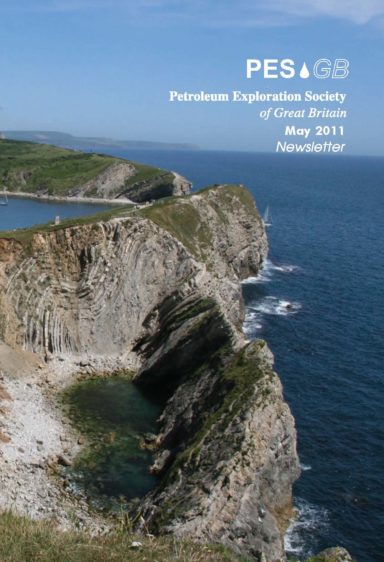PESGB May 2011
- London Evening Lecture Review
- Book Reviews
- Eastern Siberia
- West Mine Field Trip Review
Plus much more inside
President’s Page- Steve Garrett
I was fortunate enough to attend the PESGB / SPE Young Professionals event at the Houses of Parliament on March 8th 2011. It was good to hear the consensus between Government, opposition, Scottish Nationalists, and Oil and Gas UK that our industry is a matter of immense importance. There were clear statements from our speakers regarding the desire to get to every drop we can, to remain selfsufficient for as long as possible, to sustain capital investment to flatten production decline, and to recognise it as the greatest industrial success story that the UK has enjoyed since the Second World War. Both Government and Opposition implied that they valued stability and would not repeat some of the mistakes of the prior administration.
Within a few weeks, we saw dramatic changes to the tax landscape within which we explore, develop and produce. The Government won the vote on this measure by 334 to 13, with most Labour MPs abstaining, and only the Scottish National Party voting against as a bloc. Some share prices fell by around 10%, Statoil announced that significant development projects were to be shelved, and Centrica noted a chilling impact on future investment. Oil and Gas UK stated that the change in the tax regime will decrease investment, increase imports and drive UK jobs to other areas of the world. With regard to education, speakers at the PESGB/SPE Houses of Parliament encouraged more engagement of school students in STEM (Science, Technology, Engineering and Maths) to fill 50,000 new technical jobs in our industry in the coming years. This gained a rousing round of applause from attendees. And yet at the same time NERC have withdrawn funding for MSc students. Over the month of March, PESGB have gathered data and views from University course directors on the impact of this. The loss of around 30 NERC-funded places per year on petroleum-related MSc courses will lead to fewer worldclass UK geoscientists with particular impact on less well-off students. PESGB will develop a joint response to this issue along with the British Geophysical Association and the Petroleum Group of the Geological Society, London and submit it in April to the House of Commons Science and Technology Committee. As things stand, assuming all the UK MSc courses are able to continue, there will be an even greater emphasis on educating students who will then work in other areas of the world. As explorers and earth scientists our job is to assess geological risk and reward. The month of March 2011 served as a sobering reminder as to the more unpredictable nature of political risk and reward, particularly in a time of restricted Government funds.


